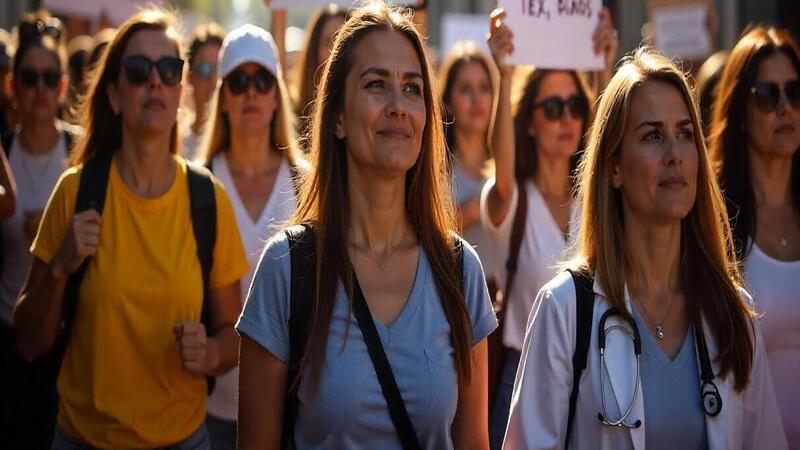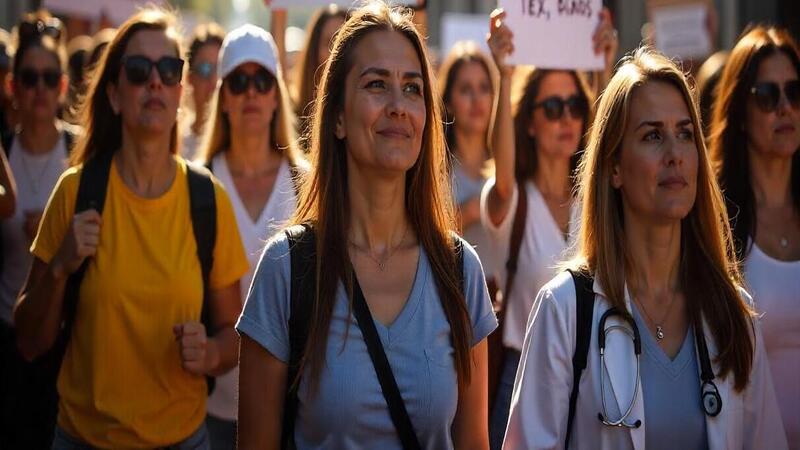Monday, June 9, 2025

The U.S. travel bans on Haiti, Venezuela, and Afghanistan are having a severe impact on medical missions and humanitarian relief efforts in these countries, especially during a time of critical need. These restrictions have created insurmountable barriers for aid workers, medical professionals, and volunteers who are essential for providing life-saving support. With increasing political instability, economic collapse, and humanitarian crises in these regions, the need for international aid has never been more urgent. However, the travel bans prevent vital resources from reaching those who need them the most. The inability to freely mobilize medical teams and humanitarian organizations is paralyzing efforts to address the escalating health emergencies, food shortages, and infrastructure challenges. As a result, countless individuals are left without access to the assistance they desperately require, further exacerbating the dire situation in these countries.
However, despite his dedication to the country, his last visit was in 2018, a decision that stemmed from increasing safety concerns. “The situation was becoming more dangerous,” he recalled. “There were protests in the streets, roads were blocked, and it became incredibly difficult to get around. For those unfamiliar with the country, the risk of getting caught in the turmoil was unsettling.” This growing uncertainty forced him to reassess his ability to continue his work in such a volatile environment.
These security concerns reflect a broader issue faced by many travelers and aid workers in Haiti over recent years. The country’s political instability, frequent protests, and widespread violence have created a challenging and risky atmosphere for anyone trying to help. For volunteers and medical professionals, this has resulted in a significant increase in difficulty when it comes to providing aid and assistance. The challenges faced by those working in Haiti have only grown more complex, making it harder for humanitarian efforts to continue without risking the safety of those involved.
In addition to these growing concerns, Haiti was affected by a travel ban implemented by the U.S. government in 2017. This ban restricted entry into the U.S. from several nations, including Haiti, due to ongoing security concerns. The decision came in the wake of an antisemitic attack in Boulder, Colorado, prompting a review of high-risk regions by the U.S. State Department. In response, the U.S. administration imposed travel restrictions on countries such as Haiti, Afghanistan, Iran, Sudan, and others, citing the need to protect national security by limiting entry from countries with insufficient vetting processes.
The travel ban was framed as a necessary step to safeguard U.S. citizens from potential threats, with officials arguing that it was crucial to prevent the entry of individuals from countries with inadequate screening measures. In addition to Haiti, countries like Cuba and Venezuela also faced varying levels of restrictions. While the list of countries was not set in stone and could be modified, the ban raised serious concerns for those who relied on travel to Haiti for their humanitarian work.
For many in the humanitarian community, the travel ban was a significant setback. Those who had devoted their time and energy to helping the people of Haiti now found themselves facing increased obstacles. “The travel ban feels like another blow to Haiti,” said one aid worker. “The people there are already enduring so many hardships, and this makes it even harder for those of us trying to help.” The frustration felt by those on the ground is palpable, as the restrictions not only impact humanitarian missions but also hinder cultural exchanges and support from the diaspora.
While the ban included certain exceptions, such as for U.S. lawful permanent residents and individuals traveling for major sporting events, it still posed substantial challenges for many aid workers. The restrictions created a complicated process for anyone hoping to provide help or support, and it made it much harder for individuals to visit Haiti for personal or professional reasons. In many cases, this meant that crucial aid and support were delayed or prevented altogether.
Despite the ongoing challenges, many remain optimistic about the future of Haiti and its relationship with the international community. Advocacy continues to grow, with humanitarian organizations pushing for the easing of restrictions and more support for the people of Haiti. As the security situation stabilizes, there is hope that the barriers preventing aid workers and visitors from returning will be lifted, allowing for a more effective and sustained effort to address the country’s ongoing needs.
The U.S. travel bans on Haiti, Venezuela, and Afghanistan are severely hindering medical missions and humanitarian relief efforts, leaving vulnerable populations without essential support during times of crisis. These restrictions prevent vital aid workers and resources from reaching those in urgent need.
For now, however, the path to providing assistance in Haiti remains fraught with obstacles. Humanitarian efforts are still being hindered by both safety concerns and travel restrictions. The people of Haiti, however, continue to show resilience, and those who are committed to helping them remain hopeful that in time, the support they need will once again be accessible.



